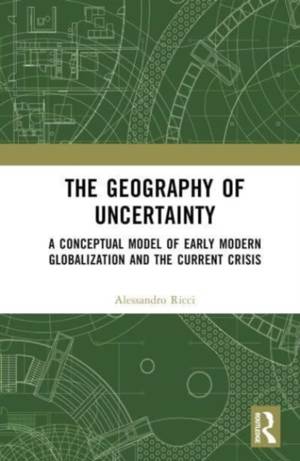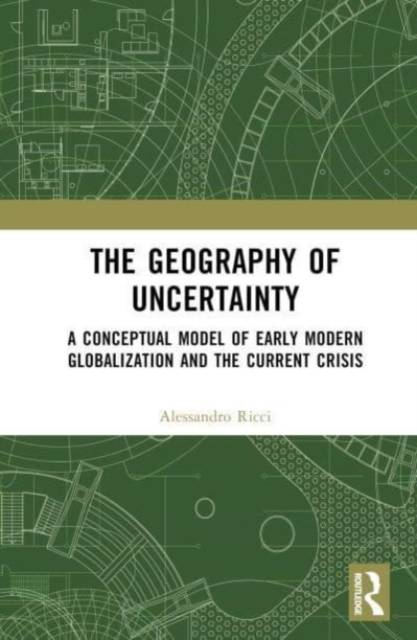
- Retrait gratuit dans votre magasin Club
- 7.000.000 titres dans notre catalogue
- Payer en toute sécurité
- Toujours un magasin près de chez vous
- Retrait gratuit dans votre magasin Club
- 7.000.0000 titres dans notre catalogue
- Payer en toute sécurité
- Toujours un magasin près de chez vous
The Geography of Uncertainty
A Conceptual Model of Early Modern Globalization and the Current Crisis
Alessandro RicciDescription
This book outlines the characteristics and implications of a potential geography of uncertainty. In doing so, it analyses this concept in reference to both the origins of uncertainty in Early Modern Age and the current geopolitical situation.
The book adopts an interdisciplinary approach to uncertainty, drawing on global perspectives and literature to define its meanings and characteristics. In order to develop a thorough and precise understanding of the geography of uncertainty, a broad perspective is adopted, which includes other forms of knowledge in which the concept of uncertainty is firmly established. As such the book creates temporal links, that may occasionally be far off from one another, to present a geographical perspective of uncertainty. It provides an interpretation of the phenomenon of globalization in a new way, relating it to the first European openness to global spaces, the Early Modern Age, and identifying the transition from the medieval world to the Modern Age as the first manifestation of uncertainty in geography. Uncertainty is more prevalent than ever in today's geopolitical, economic, financial and social reality, as well as the ongoing emergencies and crises.
The book adopts an interdisciplinary approach rooted in the geography of Early Modernity by referring to geopolitical scenarios, literature and philosophy, to target the historical roots and the prevailing configuration of the geography of uncertainty. It will appeal to scholars and students of human and political geography, politics, philosophy, international relations, economics and history.
Spécifications
Parties prenantes
- Auteur(s) :
- Editeur:
Contenu
- Nombre de pages :
- 150
- Langue:
- Anglais
Caractéristiques
- EAN:
- 9781032495132
- Date de parution :
- 15-08-23
- Format:
- Livre relié
- Format numérique:
- Genaaid
- Dimensions :
- 156 mm x 234 mm
- Poids :
- 417 g

Les avis
Nous publions uniquement les avis qui respectent les conditions requises. Consultez nos conditions pour les avis.






